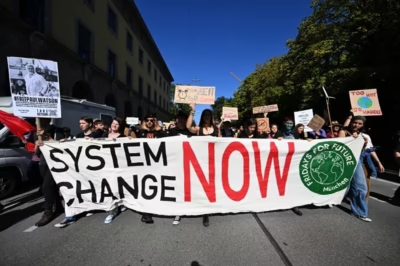Trump EPA Scraps Endangerment Finding, Landmark Climate Regulations
“Devastating”: Trump EPA [Scraps] Landmark Climate Finding in Pro-Fossil Fuel Deregulatory Push
Guest Dr. Gretchen Goldman, President and CEO of the Union of Concerned Scientists.
In a victory for the fossil fuel industry, a set of Obama-era rules that required the federal government to regulate the emissions of six greenhouse gases is being reversed by the Trump administration. The changes would undo the legal basis of the fight against global warming, as well as remove industrial reporting obligations and roll back emissions standards for cars and trucks. Environmental engineer Gretchen Goldman helped author those emission standards while working for the Department of Transportation under the Biden administration. Now as the president of the Union of Concerned Scientists, she says their repeal will not only increase what drivers pay at the pump but also set U.S. innovation back on the world stage. “We’re really seeing the abdication of U.S. leadership on climate, and that has huge implications, both for our immediate ability to reduce heat-trapping emissions globally. . .but also in terms of our standing and contribution in the world.”
Transcript
AMY GOODMAN: This is Democracy Now!, democracynow.org. I’m Amy Goodman.
We turn now to the Trump administration’s sweeping rollback of climate change policy. On Thursday, the Environmental Protection Agency plans to overturn its own conclusion that greenhouse gases endanger public health and cause global warming. Known as the endangerment finding, the Obama-era rules from 2009 required the federal government to regulate the emissions of six gases, including carbon monoxide and methane, which are released from the burning of oil, gas and coal. The Trump administration’s reversal of this decision would undo the legal basis of the fight against global warming and remove emissions standards for cars and trucks and reporting on obligations for power plants and industries. The EPA’s draft version the new rule says the endangerment finding overstated the risk of heat waves and underplayed the benefits of increased carbon pollution.
In a post on X on Tuesday, the EPA Secretary Lee Zeldin wrote, quote, “This week, we make history. Getting ready to join President Trump to announce the single largest act of deregulation in the history of the USA,” unquote.
For more, we go to Washington, D.C., where we’re joined by Gretchen Goldman, president and CEO of the Union of Concerned Scientists, also an environmental engineer, formerly worked on environmental policy in the Biden White House and at the Department of Transportation.
Gretchen, thanks so much for being with us. Talk about the significance of what’s happening now.
GRETCHEN GOLDMAN: It’s quite significant, and it was quite devastating to see, even though we expected that this was coming. The impacts of this action will be vast, both in terms of our immediate ability to protect people from the harms of climate change, economic harms, health harms, and also in terms of our ability to meet U.S. climate goals, to meet global climate goals.
And this is all happening with time that we don’t have. We know we need to swiftly and dramatically reduce heat-trapping gas emissions now, as year after year we see devastating harm from climate-driven extreme weather events. And this is now something we really need to take action on, and so it’s quite devastating to see this week.
AMY GOODMAN: The Trump administration initially attempted to undermine the science behind the endangerment finding. And again, for people to understand, explain exactly what that is and what that report was, based at the Department of Energy.
GRETCHEN GOLDMAN: As part of their broader attacks on climate science and climate action, the Trump administration secretly convened a group of climate contrarians under the Department of Energy to produce a report that reiterated many of the long-debunked climate denial talking points and tried to pass it off as a science-based report. We won in court, the Union of Concerned Scientists and the Environmental Defense Fund together. We won, and the administration disbanded that group of climate contrarians and have had to turn over more than 100,000 pages of documents related to that. We’re seeing that they are being slowed down by these efforts and our ability to push back.
AMY GOODMAN: Can you talk about President Trump’s personal connections to fossil fuel executives and how exactly that is affecting what is expected to be announced on Thursday, again, what many are calling the single — including Zeldin, the single biggest attack in U.S. history on federal authority to tackle the climate crisis? He calls it the single largest deregulation act in U.S. history.
GRETCHEN GOLDMAN: This is their holy grail. They’ve been focused on this for a long time, because the reality of climate change and its impacts are very inconvenient if you’re someone who wants to give handouts to the fossil fuel industry and wants to ensure that these industries can continue polluting communities across the country. And so, we’re seeing them really take steps to give handouts to connections to the fossil fuel industry and others. And that’s harming communities, especially Black and Brown communities, where we know already face disproportionate impacts and harms from toxic air pollution.
AMY GOODMAN: This comes a month after President Trump pulled the U.S. out of the UNFCCC — right? — the United Nations Framework Convention on Climate Change. Talk about the significance of these two acts together.
GRETCHEN GOLDMAN: We’re really seeing the abdication of U.S. leadership on climate, and that has huge implications, both for our immediate ability to reduce heat-trapping emissions globally, as we know is desperately needed, but also in terms of our standing and contribution in the world. The U.S. has long exhibited climate leadership in terms of innovation, in terms of reduction in emissions and in terms of providing that urgency around what we need to do to take action on climate change. And this, unfortunately, is going to set us back a long time in terms of that diplomacy, those international relationships and the U.S.’s ability to help lead the world in taking action on climate change.
AMY GOODMAN: Karoline Leavitt, the White House press spokesperson, emphasized auto standards being an area where regulation will be rolled back. You used to work, Gretchen Goldman, at the Department of Transportation. Can you talk about emissions standards and what’s been achieved by these standards, and the incredible effect of a rollback?
GRETCHEN GOLDMAN: I was at the Department of Transportation working on climate and transportation issues, and so this is very devastating to me personally, as well. Under the previous administration, we issued the strongest standards to reduce dependence of cars and trucks on fossil fuel, and this was saving people money at the pump. It was helping us with climate emissions reductions, and it was reducing toxic air pollution in communities. It was one of the strongest climate actions that this nation has taken. But now, tomorrow, it’s expected to be announced that they’re repealing those standards, and that’s going to set us back. It’s going to cost consumers more money, and it’s really going to stifle innovation and our ability to meet the moment and reduce climate emissions everywhere.
AMY GOODMAN: Well, I want to thank you very much for being with us, Gretchen Goldman, president and CEO of the Union of Concerned Scientists, speaking to us from Washington, D.C.
RELATED
“Destroying Knowledge”: Michael Mann on Trump’s Dismantling of Key Climate Center in Colorado
On Monday, February 23rd, once again, Democracy Now! will be celebrating our 30th anniversary at the historic Riverside Church here in New York City. Guests will include Angela Davis and Naomi Klein; Maria Ressa, the journalist who won the Nobel Peace Prize; Michael Stipe, the singer, the songwriter, the activist; the jazz legend Wynton Marsalis; the Pulitzer Prize-winning poet Mosab Abu Toha; V., the renowned playwright; Hurray for the Riff Raff; and so many more. Go to democracynow.org for details and to get tickets. The seats are filling up fast.
The original content of this program is licensed under a Creative Commons Attribution-Noncommercial-No Derivative Works 3.0 United States License. Please attribute legal copies of this work to democracynow.org. Some of the work(s) that this program incorporates, however, may be separately licensed. For further information or additional permissions, contact us.
Wings of Change is entirely reader supported.
Wings invites you to subscribe.
Join us on Wings of Change
In this critical time hearing voices of truth is all the more important although censorship and attacks on truth-tellers are common. Support WingsofChange.me as we bring you important articles and journalism beyond the mainstream corporate media on the Wings of Change website and Rise Up Times on social media.
Join us on Wings of Change. We still have much work to continue to do as many activists and organizations address current threats to our democracy and unjust actions against people of color and activists and make plans for the upcoming years. Wings of Change is pleased and excited to be a part of that work through education, information, and inspiration. Here in Minnesota we are particularly targeted by the Trump regime with ICE immigrant law enforcement illegally arresting and deporting our neighbors who are mostly people of color.
Access is always free, but if you would like to help:
A donation of $25 or whatever you can donate will bring you articles and opinions from independent websites, writers, and journalists as well as a blog with the opinions and creative contributions by myself and others.
Sue Ann Martinson, Editor 
“We don’t have to engage in grand, heroic actions
to participate in the process of change.
Small acts, when multiplied by millions of people,
can transform the world.”
— Howard Zinn



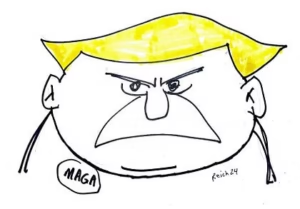
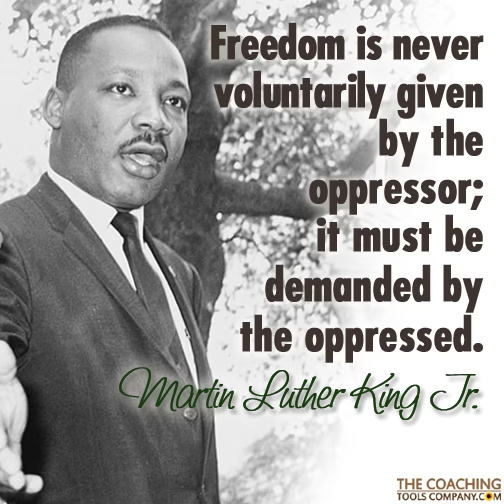
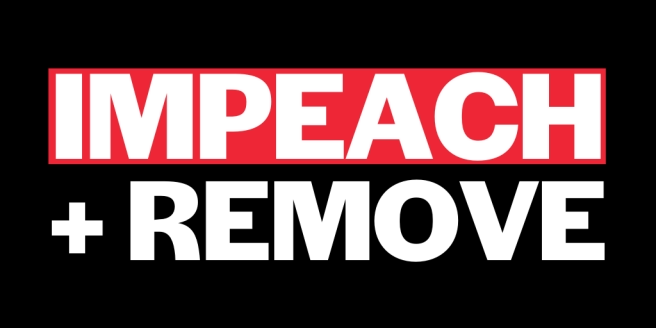
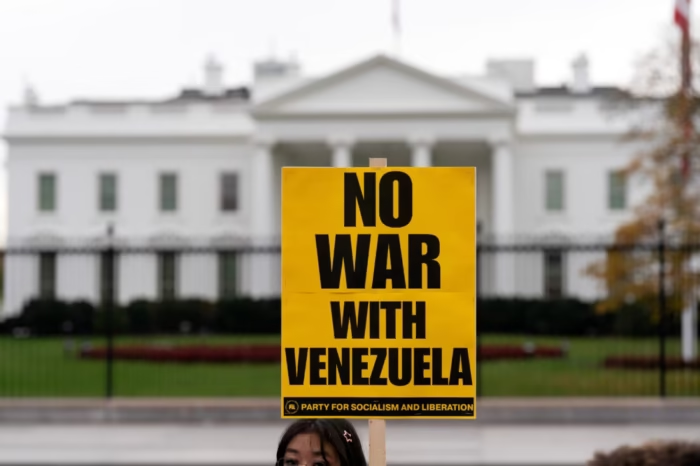
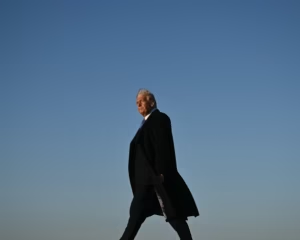
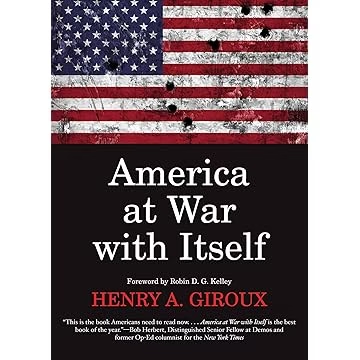
 Wings of Change is entirely reader supported.
Wings of Change is entirely reader supported.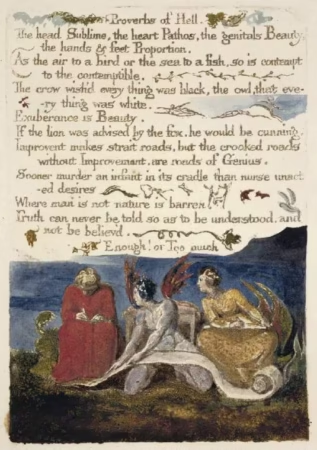
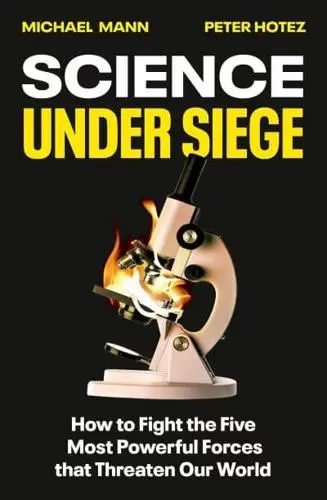
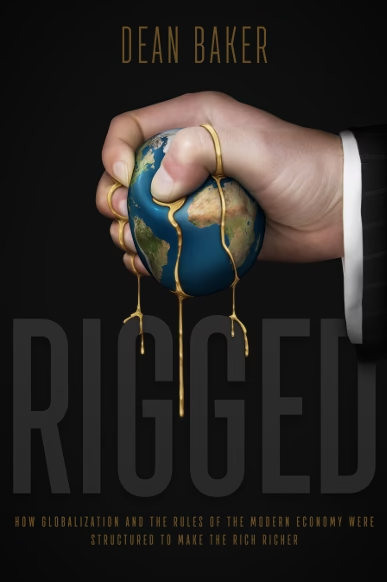
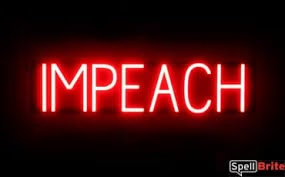 Dean Baker, senior economist at the Center for Economic and Policy Research, says Trump’s aides should be “wondering about the man’s sanity” after Wednesday’s speech. “This is utterly divorced from reality.” Though Trump blames former President Biden for the poor economy, Baker notes that Trump had inherited an “incredibly strong economy by almost every measure imaginable.”
Dean Baker, senior economist at the Center for Economic and Policy Research, says Trump’s aides should be “wondering about the man’s sanity” after Wednesday’s speech. “This is utterly divorced from reality.” Though Trump blames former President Biden for the poor economy, Baker notes that Trump had inherited an “incredibly strong economy by almost every measure imaginable.”